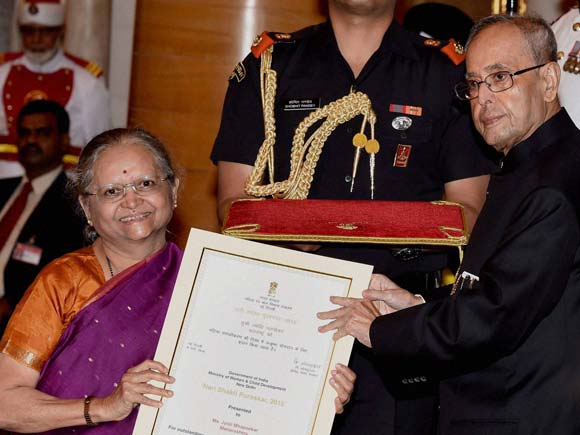Mumbai, India, is one of the largest cities in the world. The city houses just over 18.4 million people and is home to the millionaires and billionaires of India. However, it is also home to some of the poorest individuals in the country, with slums mushrooming everywhere. Mumbai’s large population consequently leads to large amounts of waste being produced by both companies and individuals. The 11,000 tons of waste generated in this area every day are piled in the city’s Northern region, forming a mountain that overlooks the city; growing taller every day.
Jyoti Mhapsekar, a woman activist, has been working for over thirty years with the women who sweep the streets for low wages. She has noted the problem and is doing something about it. By organizing teams of women to filter out the rubbish for recycling, she has noted a significant amount of it fails to go to the city’s Northern region and onto the garbage pile. 50 tons of rubbish are prevented from getting to the pile every day. However, changing people’s mindsets about garbage has not been easy.
“It requires a change in attitudes. People think ‘not in my backyard’ and then ‘out of sight, out of mind,’” she says.
Upper and middle classes have been growing in the city. As a result, Mhapsekar says, the garbage has also been increasing. “People feel that Mumbai is dirty because of the slums, but actually garbage is generated by upper and middle classes. As your income increases, garbage increases. It takes a lot of time to motivate those people,” she went on to say.
Deena Mehta, India’s first female stockbroker, lives in the Southern Area of Mumbai. The area happens to be one of the more affluent neighborhoods in Mumbai. Throughout her career, she persevered sexism and consistently worked within the sector. Her hard work led her to become BSE’s first female President in 2001.
She says that Mumbai’s vast population and its range of opportunities leads to more people coming to the city in search of jobs. Further, she says that there is no discrimination in Mumbai. “Even if you earn less here, you’re accepted in society. I wouldn’t hesitate to talk to any person or employ anyone,” she said.
Further, Mehta highlighted this difference to other places in India. “That’s not the case when you go to other cities or small towns in India. Mumbai is very hospitable to everyone. I’m sure most people don’t go hungry here because this city provides employment to them,” she said.
Gul Panag, a successful Bollywood actress, has also contributed to Mumbai’s development. In the past, she had cited considerable interest in the film industry. However, as time moved on, she realized most roles for females only offered support to the hero – something that did not fit quite well with her.
Further, Panag realized that she could not afford the city’s expensive lifestyle through acting. As such, she set up a series of companies that not only earn her money but also offer many Mumbai residents employment. She also began a women-only arts festival that give a platform to other women who want to prosper in the film industry.
She says, “What Mumbai does is shows you’re just one side of the spectrum. Even in its most affluent area, you’ll still have slums. It gives you the perspective that no other city in the world can give you.”




